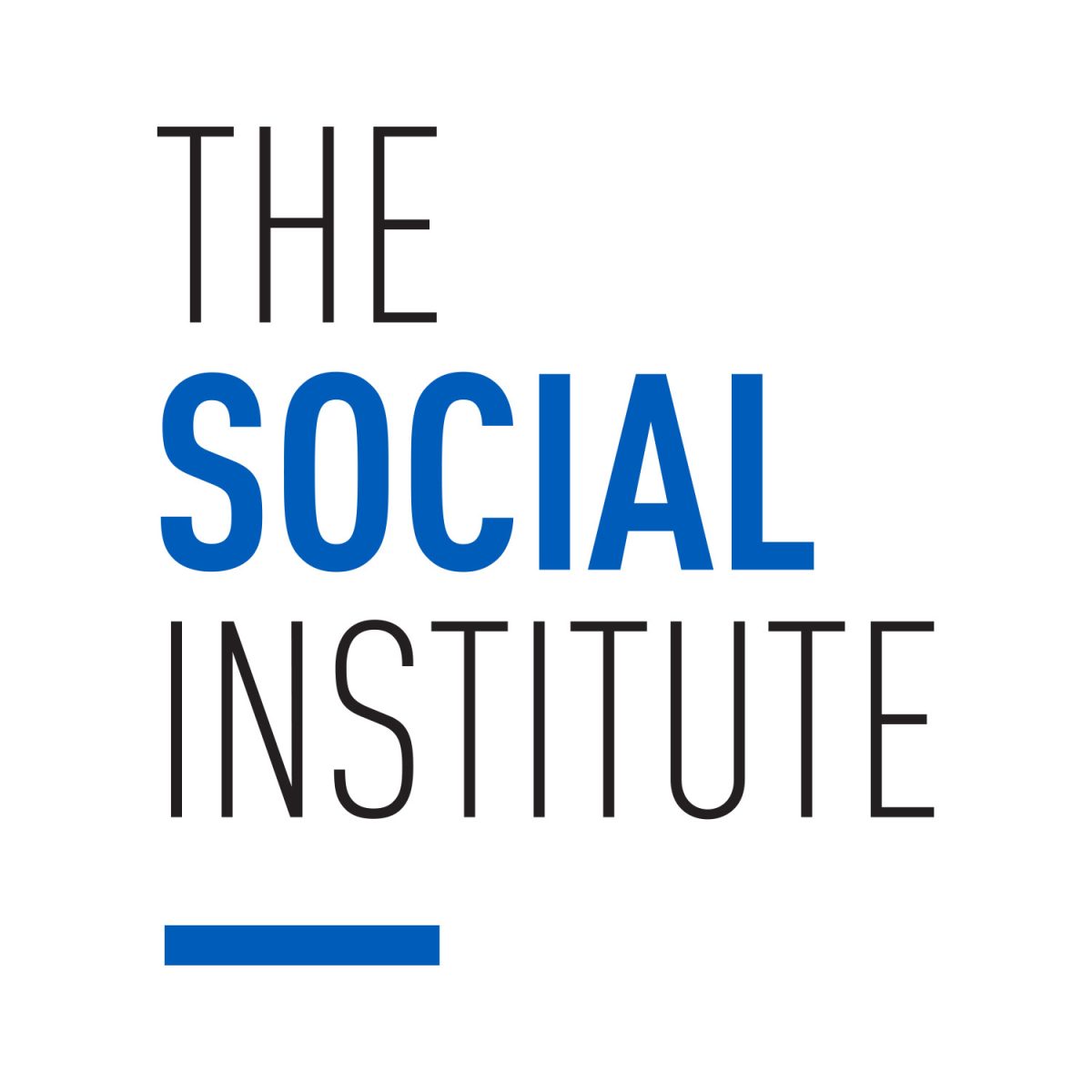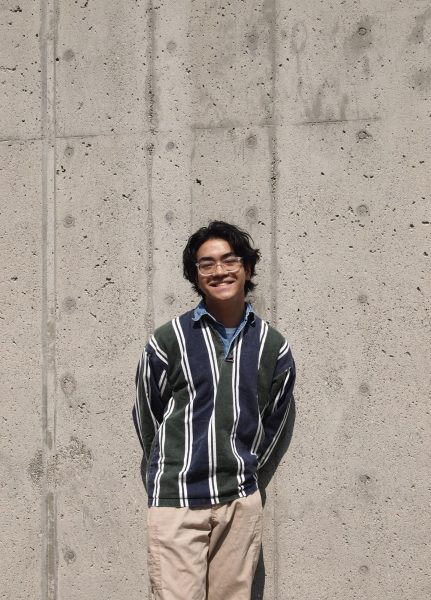Artificial intelligence opens an abyss of ethical concerns: plagiarizing research articles, deepfaking incriminating videos, or providing unequal job opportunities. While it’s easy to acknowledge AI’s potential as a weapon, we must also recognize its equally—if not more—extreme potential as a tool. On campus, you may have noticed more technology-minded efforts: preemptive policies on cell phone usage, teachers’ use of AI in curriculum, and, most notably, Bellarmine’s recent partnership with The Social Institute. The Lion Journalism team took to asking Principal Cindy Davis about these new developments.
Questions for Davis
1. What, to you, is the purpose of the Social Institute?
“Just to give you a little context, when Bellarmine went to a one-to-one platform, and that was back in 2014 we identified pretty early on that students needed to learn the difference between using the device for entertainment and a device that was used for educational purposes.
I think students have matured and have certainly learned how to separate those differences. I think another factor that is apparent to high school students in using technology correctly. What are the moral or ethical guidelines around using technology? And there is not a single course that we offer that provides that kind of instruction or practice or opportunity for conversation.
Prior to investigating the Social Institute, Bellarmine used what’s called CommonSense Media as a resource, and we asked our departments to introduce these lessons, and unfortunately, it wasn’t done consistently. Therefore students were not giving the same experience or a similar experience. And so we partnered.
We started looking for a mechanism or a way in which we could offer direct instruction for students, for employees, for families to engage in conversations around technology.After considerable research, the Social Institute was introduced as the very top company to work with.
Our faculty are the facilitators, but the students are the ones that should be really engaging in the material. Now, unfortunately, we can experience some glitches with technology. We’re not sure if it’s on their end or our end.
I’m not saying that for any reason other than that’s what we’ve identified so far, but I think once we work through those issues, we have a great opportunity to have different disciplines look at the calendar of lesson plans that are available and make some decisions on how that would fit in their curriculum.
For example, I think the health classes have an opportunity with material around healthy decision making and English classes, for example, could offer something on technology, ethics and technology, how to cite correctly, how to use AI in a way that doesn’t interfere with your integrity.
In other words, you’re using it as a tool to give you feedback, but not to write your paper.”
2. Noticing trend in Bellarmine’s technology-conscious efforts– strengthened phone policy, teacher-specific policies in AI usage, and an AI justice summit. Where does The Social Institute fit into all of this?
“It fits in really, really nicely. I attended a conference last November with all the Jesuit principles in the United States, and the topic was AI, and there were a number of presenters. One presenter was a professor at Duke University, and we actually went to the university to hear him speak. Another was someone who is very engaged in research of the human brain. And a third was a classroom teacher who was on that road to discovery AI early on.
And the message was, ultimately what my takeaway was, we would be negligent if we didn’t show students how to use it correctly and ethically. And so the social Institute has relevant lessons, timely lessons, to help us with that instruction.
We don’t consider ourselves experts. There are some that are closer to that level of, you know, being an expert, but none of us, that’s not our background. We weren’t prepared to be experts in AI.
So the Social Institute is able to tap in to actual experts to develop these lessons to help us kind of inform students. I wouldn’t say that we’re ahead of the game. I think we are trying desperately to not fall behind and to be as current as we possibly can.
There were also a panel of students, high school and college students, that spoke about the absolute importance of having to be prepared to know how to use it, and they feared that not having access to it or being able to use it correctly, that they would be behind When they went to college or entering into a career?
Oh, yeah, I think about my own profession, and it creates efficiency. I’m not interested in having AI write a letter for me, but when I have had it proofread it Sure, sometimes it makes suggestions that I don’t take because it’s not my voice, but in other cases, it may change a paragraph or two, and that’s great feedback.
I also have great editors in this hallway I can go to sometimes I do that. Honor is a wonderful tool. It allows us to speak freely in a meeting. We capture the notes, we have our action steps, and we move forward so efficiently, you know, in the absence of this, you will fall behind, but using it correctly is essential. We have a responsibility to teach our students how to use this correctly.”
3. Four years from now, where do you see Bellarmine’s technology and social media efforts going?
“I think it’s absolutely essential that we remain current with our content, it has to be relevant for the college career pathways that our students are choosing. We need to prepare students for life, and we want them to always lean on those Jesuit values, how to remain a person for others. How do you operate with a sense of all things are, go back to our relationship with Jesus Christ. How do you do that, if you don’t talk about the ethics behind technology?”
The increasing use of technology in education calls for a more advanced approach to navigating its practical and ethical challenges. The partnership with The Social Institute is Bellarmine’s most recent step in addressing these issues head-on, ensuring students, faculty, and families are equipped to have meaningful discussions about responsible technology usage.
The Social Institute is designed to help students, educators, and families promote responsible decision making both on and offline. While Bellarmine had been incorporating technology into its education since 2014, the school realized they needed a way to train members of the community on how to ethically and effectively navigate technology usage such as social media and AI.
As AI became an increased topic of discussion with the escalated use of technologies such as ChatGPT and Grammarly, systems needed to be put in place to help manage these systems. As noted by Davis, the ethical guidelines surrounding AI usage are not covered formally, leaving a gap in what is considered ethically and practically correct. This is where the Social Institute’s resources can play a vital role in helping educators incorporate lessons in AI and how it can play into their curriculum. Whether it’s using AI programs for learning or helping in managing the integrity of schoolwork, these conversations are essential as students prepare for college and the workforce.
As Bellarmine moves forward, the school’s aims to help its technology keep up with the advancements in AI. Not only is the goal to help educators and families become more familiar with the increased usage of AI, but to also help students become more aware of how such technologies can be used ethically and efficiently. By continuing to integrate new technologies into the curriculum, Bellarmine will continue to prepare students for the opportunities that they will face in their future.



